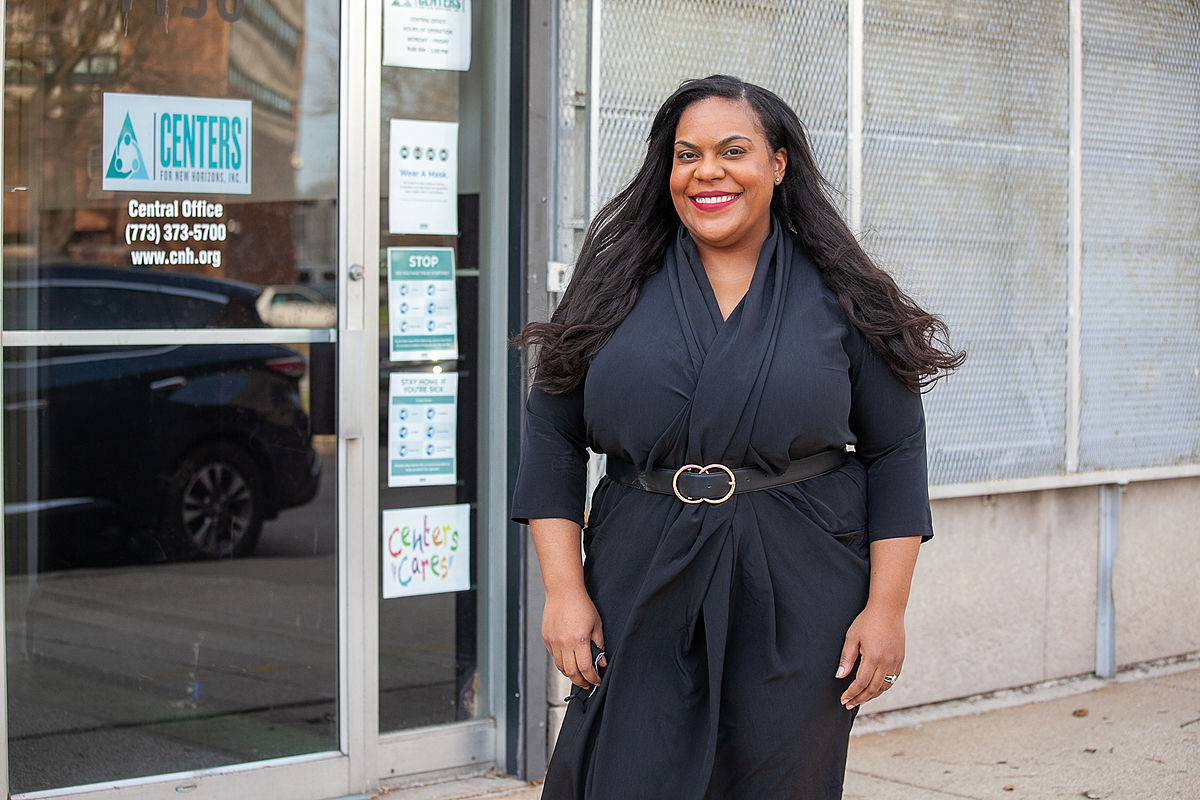Christa Hamilton doesn’t remember where she first heard the adage, but she and the organization she leads have adopted it as a mantra: “Jobs stop bullets.”
Bronzeville-based Centers for New Horizons, where Hamilton is the executive director, specializes in workforce development as a violence prevention strategy. “When you engage people in pro-social activities like a job, you turn them away from antisocial activities” that can lead to becoming a victim of violence, a perpetrator of violence, or both, Hamilton says.
When staff from UChicago Medicine’s Violence Recovery Program talk with victims of violence and their families at the hospital, employment is one of the areas they discuss. If anyone in the family is looking for a job, the violence recovery specialist and a Centers employment specialist may go to the family’s home after the patient’s discharge — “and we’ll even go to the hospital if someone wants to talk right away,” Hamilton says.
The employment specialist assesses whether the patient or family member seeking work is ready to be connected directly with one of Centers’ 500 employer partners in Chicago, which range from mom-and-pop stores to local delivery services to large corporations like Walgreens. A recent client who was treated at UChicago Medicine after being shot “was just waiting for something in his life to change,” Hamilton says, and with Centers’ help he quickly got a full-time job as an exterminator for eighteen dollars per hour.
Most clients go into the Centers transitional employment program, where they spend several weeks in an employer partner’s workplace learning the basics. “If you’ve been working for a while, you know how to get to work on time and accept instruction from your manager,” Hamilton explains, “but those are things you need to learn in a workplace. If you’ve never had a job, you’ve never developed those skills.”

“The amount of hope, confidence, and self-esteem that comes with even a minimum-wage job transforms people. We all want the same things: safety, a stable place to live, and the ability to take care of family. When you connect people with a job that gets them closer to those things, it makes the future feel tangible — and, hopefully, changes the trajectory of their life.”
After a client is hired, Centers provides ongoing coaching and support services. “People are so excited to get the call that they got the job,” Hamilton says, “but that can make new barriers come up. We have to unpack a lot of fear, anxiety, and self-sabotage that can come out of a fear of thriving.”
Clients also come to Centers through its violence prevention and intervention program, established in 2019 with the help of a $40,000 grant from UChicago Medicine’s Block Hassenfeld Casdin (BHC) Collaborative for Family Resilience. The grant enabled Centers to hire its first street outreach and crisis response team members, who engage with young people at popular spots like community centers and parks to invite them into Centers employment programs, after-school programming, counseling, and other services. Everyone in a client’s family is eligible for support from Centers, whose holistic approach also includes early childhood education and services for older adults. More than 6,000 families engage in Centers programs each day at one of its thirteen locations on the South and West sides.
Centers’ partnership with the University is a deep one. Hamilton has been part of the Office of Civic Engagement’s Community Development Working Group; she currently sits on the UChicago Medicine Community Advisory Council and serves in the council’s maternal and child health working group. Centers has referred candidates to the UChicago Youth Internship Program and has hosted the Comer Children’s Hospital Pediatric Mobile Medical Unit at its Bronzeville child care center to give families easy access to health care services during the pandemic. And UChicago Medicine physicians have educated Centers staff about the COVID-19 vaccine, so they can in turn educate community members about the safety and efficacy of the shots.
The multiple collaborations “demonstrate how interconnected our work has to be to best serve the community,” Hamilton says. “The access to information and resources that the University freely provides us is extremely valuable; we also value being together at the table to understand what the University needs from the community. My goal is for Centers to be an extension of the hospital, where the hospital hands off to us the patients and families who need help moving through the transitions of life.”



